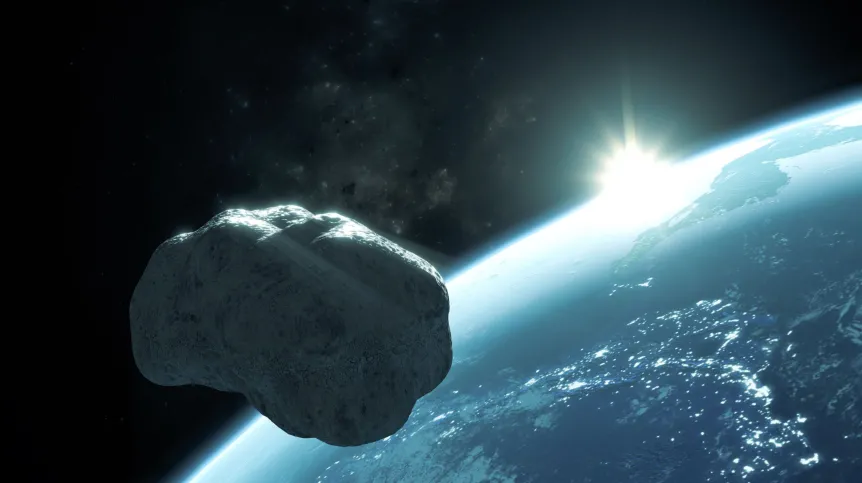
Polish company Astronika will take part in the Ramses mission of the European Space Agency. Its aim is to send a space probe to study the asteroid Apophis, which will pass Earth within a short distance in 2029. Polish experts will supply miniature radar antennas.
On April 13, 2029, the asteroid Apophis will pass Earth at a distance of 32,000 kilometres from the surface, which is less than one tenth of the distance to the Moon. The asteroid is 375 meters long, so its impact would have catastrophic consequences. Such a close flyby is an opportunity to thoroughly study the object. That is why space agencies and scientific institutions are already planning observation and 'escort' missions.
One of them is the Ramses mission of the European Space Agency (ESA), the aim of which will be to study changes in the asteroid's structure, orbit and surface caused by Earth's gravity. 'This mission, which is part of ESA’s planetary defence programme, will provide key data that could help protect our planet from potentially dangerous space objects in the future', Astronika explains in a press release.
The spacecraft called the Rapid Apophis Mission for Space Safety (Ramses), is expected to launch in early 2028 if it is to reach the asteroid Apophis on time. The Ramses mission's main ship will be a modified version of the HERA spacecraft.
Astronika will deliver some of the world's smallest radar antennas. They will be placed on smaller units accompanying the main spacecraft, the daughter ships. These miniature but extremely precise antennas will enable key observations to be made during the Apophis flyby.
Astronika previously delivered advanced mechanisms for missions such as JUICE (exploring Jupiter's moons) and HERA, also carried out as part of ESA's planetary defence programme.
The first reports about Apophis said that during a close flyby in 2029 there would be a small risk that Earth's gravity could move the asteroid into a dangerous orbit, which could lead to a collision with our planet in the future. However, thanks to the latest radar observations, we now know that Apophis' trajectory has been determined so precisely that even the Earth's gravitational influence will not pose a threat - a possible impact in 2068 or later has been completely ruled out.
Katarzyna Czechowicz (PAP)
kap/ agt/













